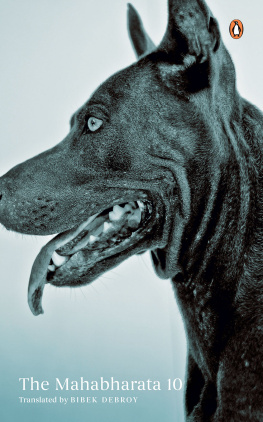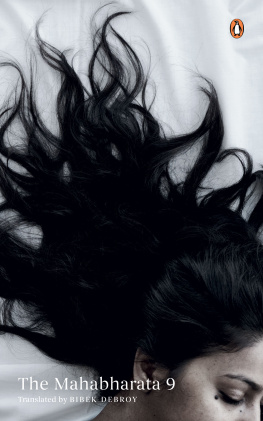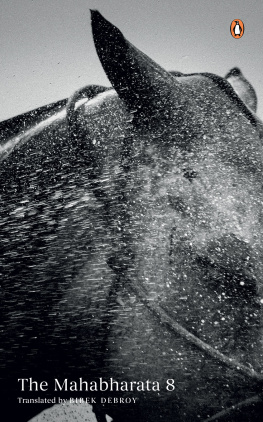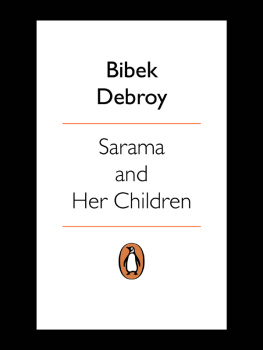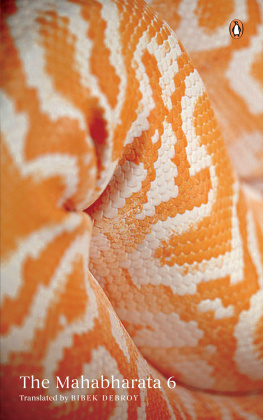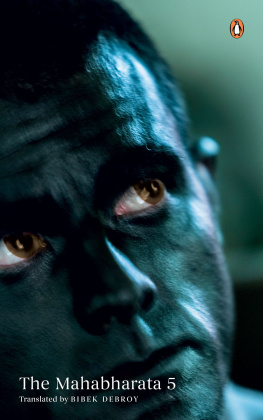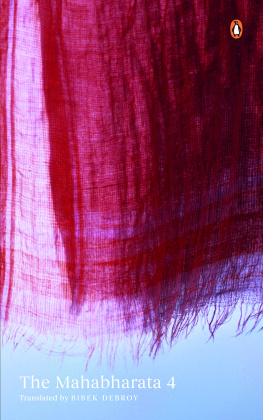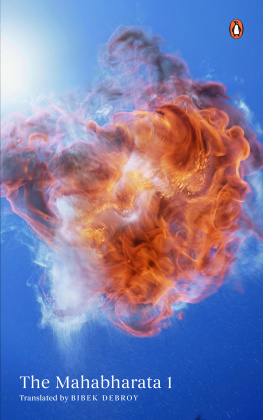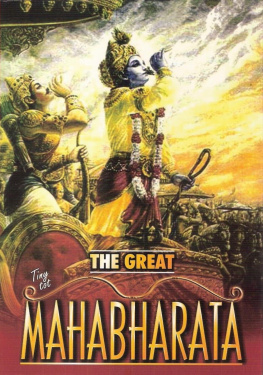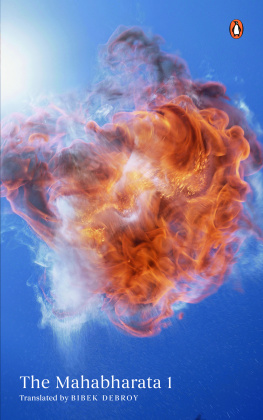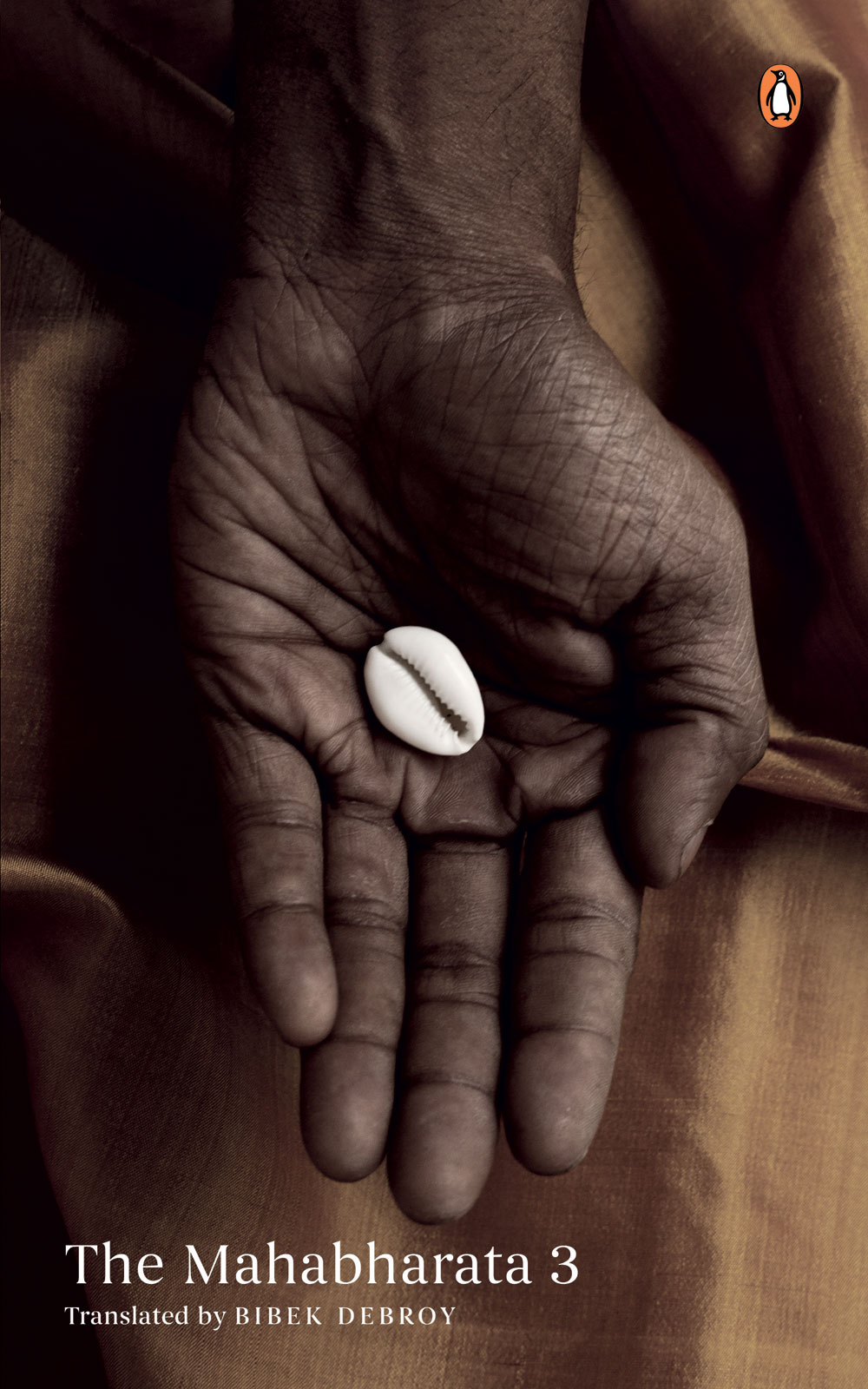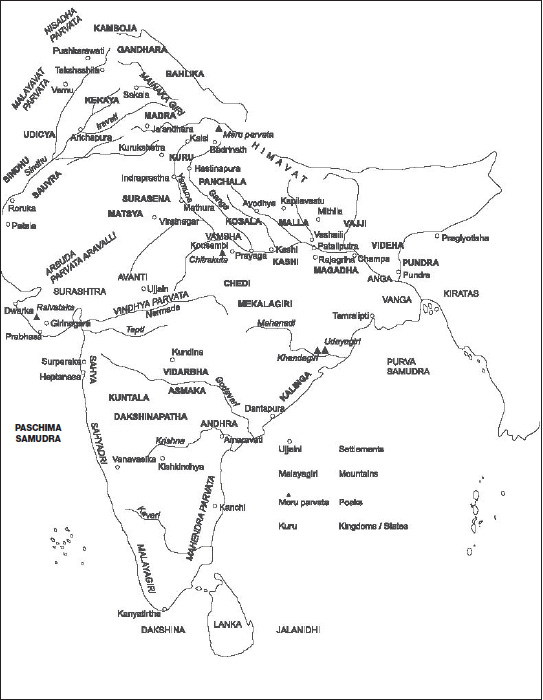Praise for the Series
The modernization of language is visible, its easier on the mind, through expressions that are somewhat familiar. The detailing of the story is intact, the varying tempo maintained, with no deviations from the original. The short introduction reflects a brilliant mind. For those who passionately love the Mahabharata and want to explore it to its depths, Debroys translation offers great promise...
Hindustan Times
[Debroy] has really carved out a niche for himself in crafting and presenting a translation of the Mahabharata... The book takes us on a great journey with admirable ease.
Indian Express
The first thing that appeals to one is the simplicity with which Debroy has been able to express himself and infuse the right kind of meanings... Considering that Sanskrit is not the simplest of languages to translate a text from, Debroy exhibits his deep understanding and appreciation of the medium.
The Hindu
Overwhelmingly impressive... Bibek is a truly eclectic scholar.
Business Line
Debroys lucid and nuanced retelling of the original makes the masterpiece even more enjoyably accessible.
Open
The quality of translation is excellent. The lucid language makes it a pleasure to read the various stories, digressions and parables.
Tribune
Extremely well-organized, and has a substantial and helpful Introduction, plot summaries and notes... beautiful example of a well thought-out layout which makes for much easier reading.
Book Review
The dispassionate vision [Debroy] brings to this endeavour will surely earn him merit in the three worlds.
Mail Today
Thoroughly enjoyable and impressively scholarly...
DNA
Debroys is not the only English translation available in the market, but where he scores and others fail is that his is the closest rendering of the original text in modern English without unduly complicating the readers understanding of the epic.
Business Standard
The brilliance of Ved Vysya comes through.
Hindustan Times
T he fourth volume will have Virata Parva and Udyoga Parva and cover Sections 45 to 60 of the 100 parva classification. It describes the sojourn in disguise of the Pandavas in King Viratas court and the cattle raid in which the Kouravas are defeated. With the period of banishment over, the Pandavas want their share of the kingdom back. When this is refused, Udyoga Parva has the preparations for the inevitable war.
Translated by Bibek Debroy
THE MAHABHARATA
Volume 3
(Sections 33 to 44)
PENGUIN BOOKS
Published by the Penguin Group
Penguin Books India Pvt. Ltd, 7th Floor, Infinity Tower C, DLF Cyber City, Gurgaon - 122 002, Haryana, India
Penguin Group (USA) Inc., 375 Hudson Street, New York, New York 10014, USA
Penguin Group (Canada), 90 Eglinton Avenue East, Suite 700, Toronto, Ontario M4P 2Y3, Canada
Penguin Books Ltd, 80 Strand, London WC2R 0RL, England
Penguin Ireland, 25 St Stephens Green, Dublin 2, Ireland (a division of Penguin Books Ltd)
Penguin Group (Australia), 707 Collins Street, Melbourne, Victoria 3008, Australia
Penguin Group (NZ), 67 Apollo Drive, Rosedale, Auckland 0632, New Zealand
Penguin Books (South Africa) (Pty) Ltd, Block D, Rosebank Office Park, 181 Jan Smuts Avenue, Parktown North, Johannesburg 2193, South Africa
Penguin Books Ltd, Registered Offices: 80 Strand, London WC2R 0RL, England
First published by Penguin Books India 2011
This edition published 2015
www.penguinbooksindia.com
Translation copyright Bibek Debroy 2011
All rights reserved
ISBN: 978-0-143-42516-8
This digital edition published in 2015.
e-ISBN: 978-8-184-75293-9
This book is sold subject to the condition that it shall not, by way of trade or otherwise, be lent, resold, hired out, or otherwise circulated without the publishers prior written consent in any form of binding or cover other than that in which it is published and without a similar condition including this condition being imposed on the subsequent purchaser and without limiting the rights under copyright reserved above. No part of this publication may be reproduced, stored in or introduced into a retrieval system, or transmitted in any form or by any means (electronic, mechanical, photocopying, recording or otherwise), without the prior written permission of both the copyright owner and the above-mentioned publisher of this book.
For my wife, Suparna Banerjee (Debroy),
who has walked this path of dharma with me
Ardha bhry manuyasya bhry rehatama sakh
Bhry mulam trivargasya bhry mitram mariyata
Mahabharata (1/68/40)
Nsti bhrysamo bandhurnsti bhryasam gati
Nsti bhryasamo loke sahyo dharmasdhana
Mahabharata (12/142/10)
Family Tree
Bharata/Puru Lineage
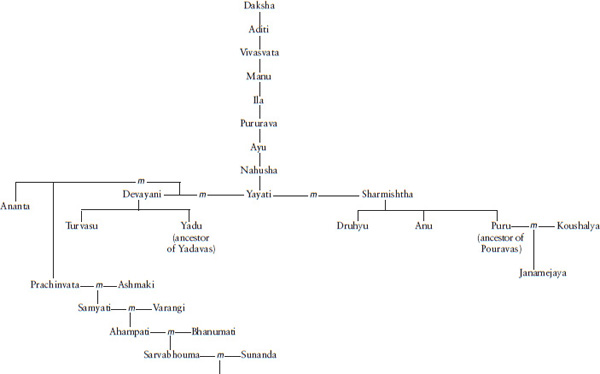
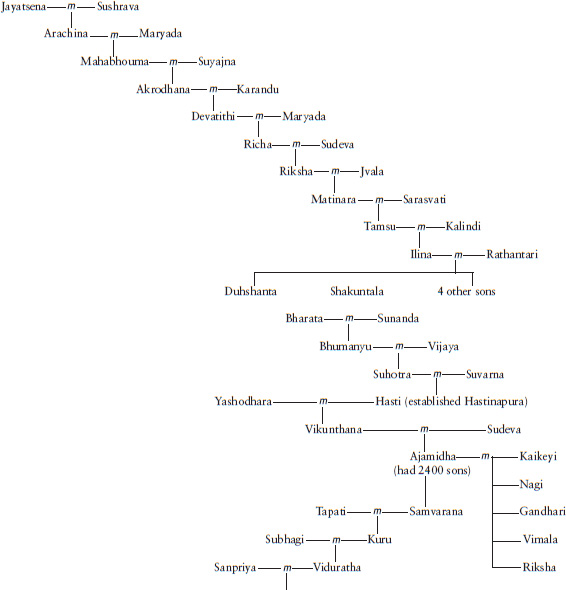
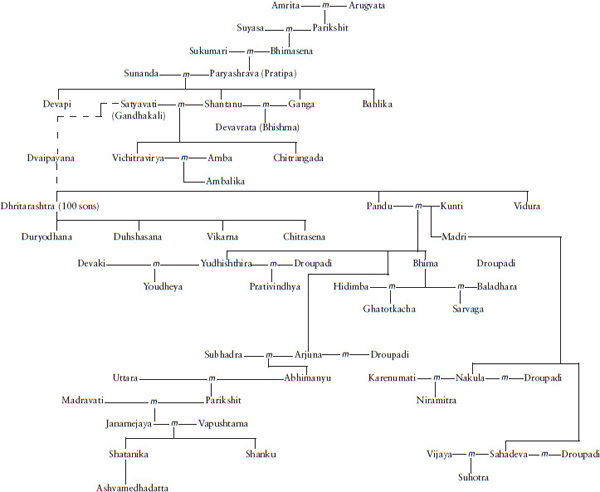
Map of Bharatavarsha
Bharatavarsha (sixth century BCE)
Acknowledgements
C arving time out from ones regular schedule and work engagements to embark on such a mammoth work of translation has been difficult. It has been a journey of six years, ten volumes and something like 2.25 million words. Sometimes, I wish I had been born in nineteenth-century Bengal, with a benefactor funding me for doing nothing but this. But alas, the days of gentlemen of leisure are long over. The time could not be carved out from professional engagements, barring of course assorted television channels, who must have wondered why I have been so reluctant to head for their studios in the evenings. It was ascribed to health, interpreted as adverse health. It was certainly health, but not in an adverse sense. Reading the Mahabharata is good for ones mental health and is an activity to be recommended, without any statutory warnings. When I embarked on the hazardous journey, a friend, an author interested in Sanskrit and the Mahabharata, sent me an email. She asked me to be careful, since the track record of those who embarked on unabridged translations of the Mahabharata hasnt always been desirable. Thankfully, I survived, to finish telling the tale.
The time was stolen in the evenings and over weekends. The cost was therefore borne by ones immediate family, and to a lesser extent by friends. Socializing was reduced, since every dinner meant one less chapter done. The family has first claim on the debt, though I am sure it also has claim on whatever merits are due. At least my wife, Suparna Banerjee (Debroy) does, and these volumes are therefore dedicated to her. For six long years, she has walked this path of dharma along with me, providing the conducive home cum family environment that made undistracted work possible. I suspect Sirius has no claim on the merits, though he has been remarkably patient at the times when he has been curled up near my feet and I have been translating away. There is some allegory there about a dog keeping company when the Mahabharata is being read and translated.


